In the Spring-Summer 2019 issue of American Poets, Laura Eve Engel reviews eleven of the year’s most anticipated poetry collections.
mobileMenu
- Poems
- Poets
- Poem-a-Day
- National Poetry Month
- Materials for Teachers
- Academy of American Poets
- American Poets Magazine
Main navigation
User account menu
DonateBooks Noted, Spring-Summer 2019
Page submenu block
.jpg?itok=3R2COZPV)
Mariner Books, January 2019
“Look / we all become our worst stories / this is mine,” writes the award-winning Palestinian American poet and novelist Hala Alyan in her fourth poetry collection. With a lyricism that is at once precise and expansive, Alyan renders the confusion of youth—the book takes as its title the last milestone year of one’s twenties—in unforgiving but tender detail.
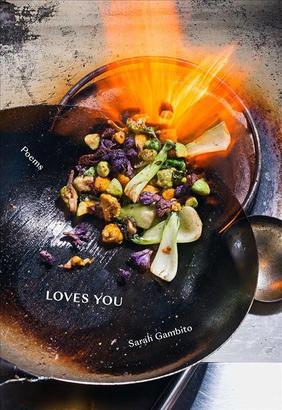
Persea Books, January 2019
Thrumming at the center of Sarah Gambito’s third collection is the fierce and constant tension between marginalization and belonging—“We were refugees against the usual things.”—a tension central in particular to the immigrant experience, and to that of anyone whose context exists outside of the American cultural monolith. Meditations on food and its ability to provide and reinforce identity, as well as exacerbate a sense of alienation....
.jpg?itok=BQWkHF-s)
Ahsahta Press, January 2019
It is with theoretical physicist Josiah Willard Gibbs in mind that Stephanie Strickland writes “The reward for / getting past the failings of language? To be found / un-readable.” She must be cognizant of these words’ relevance to the aims and challenges of her
own poetics....
Four Way Books, March 2019
If “a century of silence is violence,” then Rigoberto González’s fifth collection is a voice raised against the void, speaking for tragedies past and sounding a wild alarm into an increasingly insecure future.
Graywolf Press, March 2019
Convulsing under the occupation of an unnamed, oppressive military force, the inhabitants of the fictional town of Vasenka have all suddenly lost their hearing after a deaf boy is shot and left to die: “Ours is a country in which a boy shot by police lies on the pavement / for hours.”
“I am not a narrative / Form, but dammit if I don’t tell a story.” The story that occupies Jericho Brown’s third collection—one largely unstapled from narrative, as promised, but engaged nonetheless with the act of telling— is both ancient and urgently contemporary.
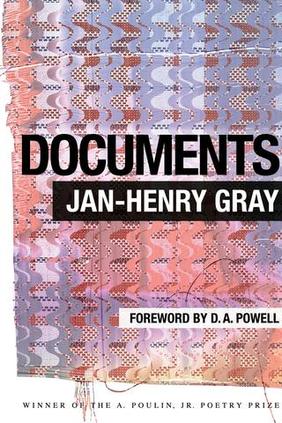
BOA Editions, April 2019
“I wanted to offer a break, a reprieve. Freedom from forms,” writes Jan-Henry Gray in his debut collection, an innovative and searching book that interrogates structures, legal and literary. Taking apart documents that exist ostensibly to confer legal status to immigrants and same-sex couples, Gray marries found language with his own to expose governmental bureaucracy for what it so often is—a tool for political and social subjugation—even as he invents a new poetic form in its voice.
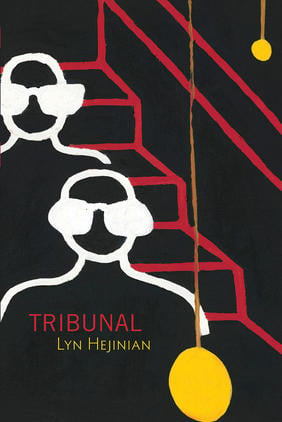
Omnidawn Publishing, April 2019
Since long before “disruption” became the buzzword du jour of the business world, Lyn Hejinian has been an active practitioner of a disruptive poetics, challenging and destabilizing the very corporate and political structures that now make claims about their own power to disrupt. Hejinian’s most recent collection, composed of three long poems generated over the past decade, is both the product of a contemporary moment marked by national unrest and the global rise of fascism....
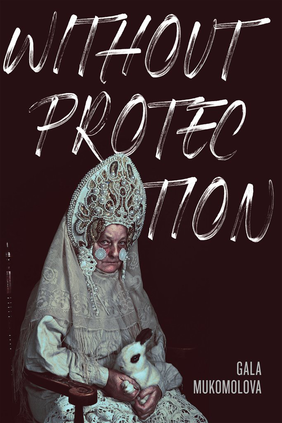
Coffee House Press, April 2019
As its title suggests, danger and vulnerability are ever-present in Gala Mukomolova's debut collection, in which the mythic and the mundane strike against each other until something wholly other, a fire or a song, ignites. While the Russian folktale of Baba Yaga and Vasilyssa opens the collection as if to frame it—“‘I come in the name of others and I come in my own name...."
Penguin Books, April 2019
“One could say it was as if my life saw me seeing my life and said, Yo, Skinicky, when you gonna tell that story about the crew? You ever break night with a brick?” Brimming with youthful energy and tenderness, Willie Perdomo’s deeply personal fourth collection sings of one summer in East Harlem in the early 1990s....
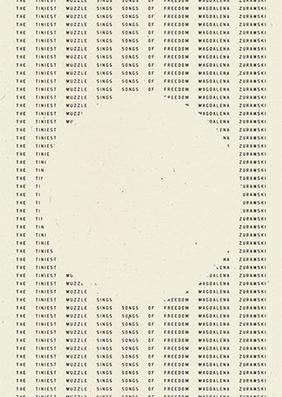
Wave Books, April 2019
We enter Magdalena Zurawski’s contemplative second collection by arriving—“You arrive in a sentence / where you would like / to stay, but you are told // to move on to another, / so you do”—but, as the poet has already suggested by the close of her first sentence, we are not meant to stay put.
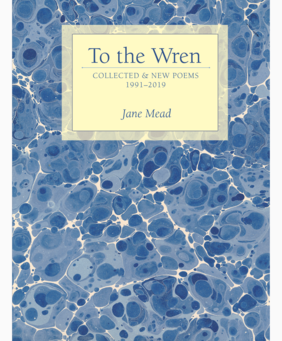
Alice James Books, August 2019
It’s both remarkable and telling that Jane Mead's essential volume, in which a lifetime of work coheres into a kind of secular devotional, is practically presaged in one of Mead’s earliest poems: “I wanted to make a prayer / I spent the youthful part / of a life-time on it.”
